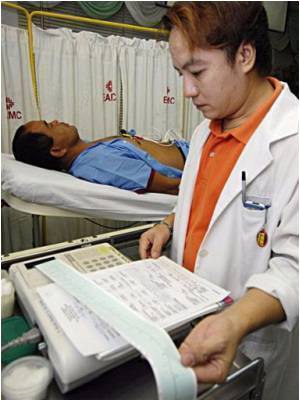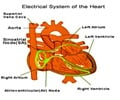Middle-aged women can reduce their risk of developing cardiovascular disease by lowering their blood pressure, a new study has suggested.

The proportion of potentially preventable and reversible heart disease is almost 36 percent in women compared to 24 percent in men, as measured by 24-hour systolic blood pressure monitoring, said researchers.
In the study, the researchers analyzed participants for absolute and relative risks of cardiovascular disease associated with systolic blood pressure.
Three major risk factors account for 85 percent of the modifiable (reversible) risk for heart disease in women and men: high systolic blood pressure, high cholesterol and smoking. High systolic pressure is the most important risk factor.
Researchers estimated the occurrences of cardiovascular disease in women and men that are potentially preventable by lowering blood pressure. The absolute and relative risks associated with high blood pressure were assessed using both ambulatory 24-hour blood pressure monitoring and conventional blood pressure measurements in the doctor's office.
"It is recognized that women live longer than men, but that older women usually report lower quality of life than men. By lowering systolic pressure by 15 mm Hg in hypertensive women, there would be an increased benefit in quality of life by the prevention of cardiovascular disease in about 40 percent in women compared to 20 percent in men," said Staessen.
Advertisement
The findings were reported in Hypertension: Journal of the American Heart Association.
Advertisement














